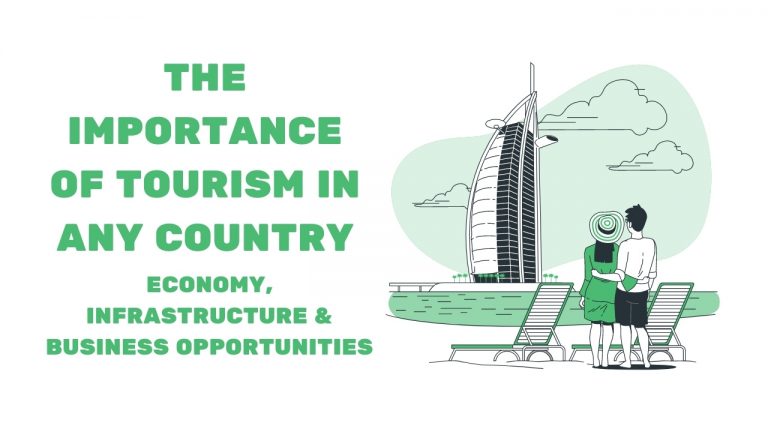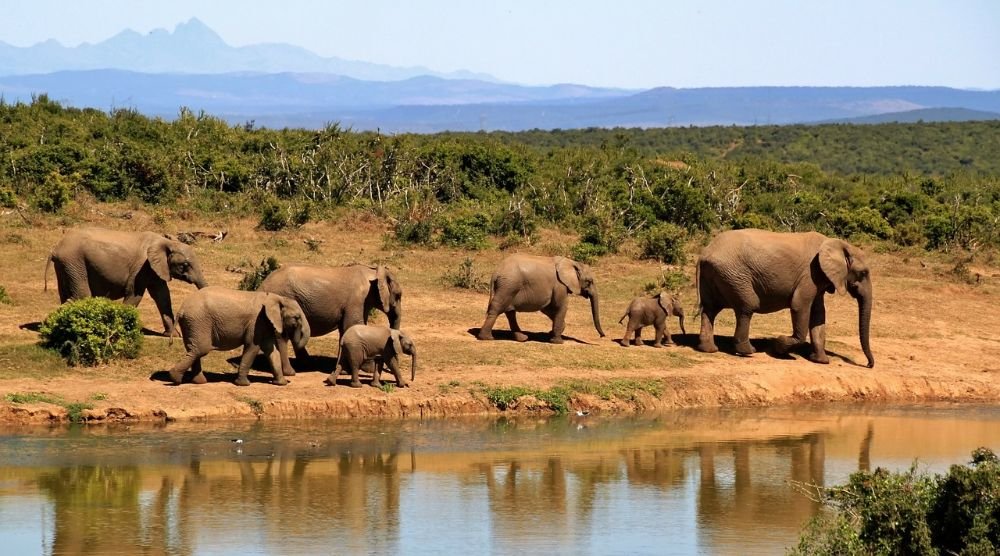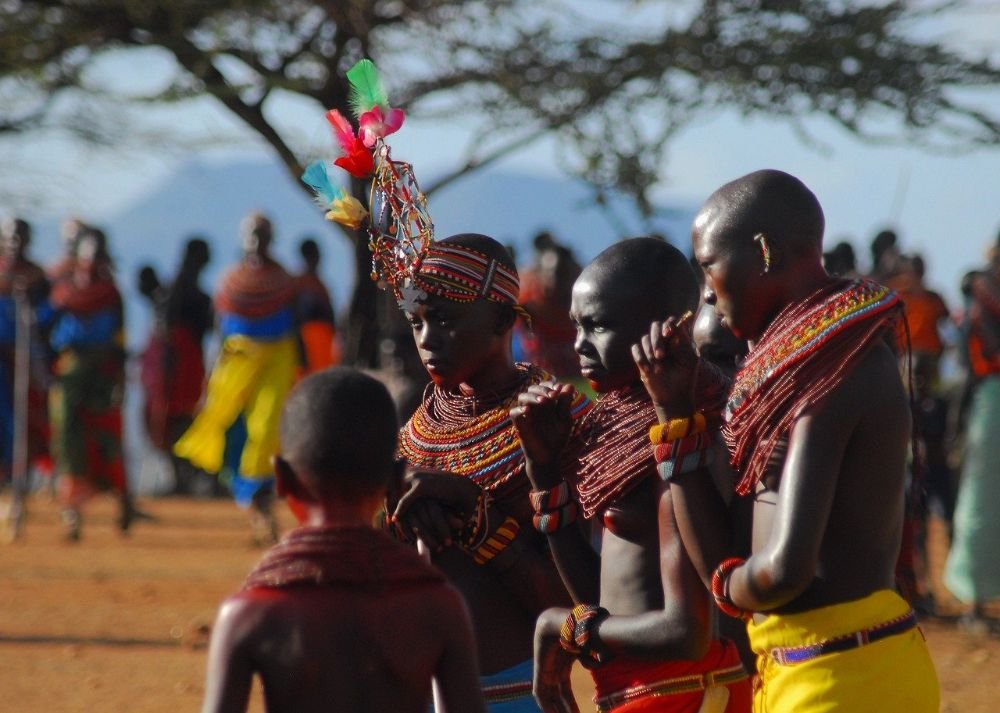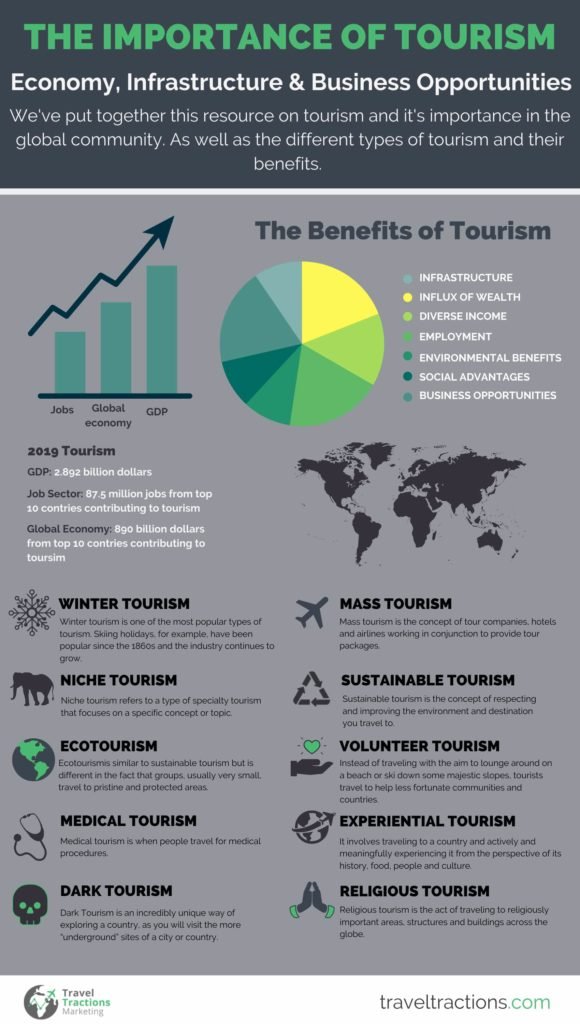

The Importance of Tourism in Any Country – Economy, Infrastructure & Business Opportunities (With Infographic)
Tourism is the act of traveling within your own country, or to an international destination, for either the purposes of business or pleasure. It has become a major source of income for a lot of countries, especially those with a young or developing economy.
We’ve put together this resource on tourism and its importance in the global economy. As well as the different types of tourism throughout the world, exploring the importance of each type.
Winter Tourism

Winter tourism is one of the most popular types of tourism. Skiing holidays, for example, have been popular since the 1860s and the industry continues to grow.
Many countries that are the hubs of winter tourism are in Europe, with particular states in the United States and Canada being go-to destinations. Switzerland is the cradle of winter tourism and continues to be the most popular destination.
Mass Tourism
Mass tourism is the concept of tour companies, hotels, and airlines working in conjunction to provide tour packages. This type of tourism involves being able to book your flights, your place to stay, and all the extras all in one go with one payment.
This form of tourism has become incredibly popular, especially with younger people wanting to travel, as it is usually a lot cheaper than buying everything separately. Travel agents often run a variety of mass tourism options – but these opportunities have mostly shifted online.
Niche Tourism

Niche tourism refers to a type of specialty tourism that focuses on a specific concept or topic. This can be food, sports, sex, war, or wildlife tourism. Each of these tours will focus on their individual concepts.
This type of tourism is fairly new, and more and more terms and types of niche tours are appearing every day. As people become more involved and interested in these unique topics.
Many countries and towns are narrowing their focus to niche tourism, to grow these specific niches where they can’t grow their general tourism market. For example, wildlife safaris in various African countries, and rugby championships draws huge crowds of tourists to the host countries. As well as cooking classes, cafe-crawls, and food-tastings in places with strong food culture.
Sustainable Tourism
Sustainable tourism is the concept of respecting and improving the environment and destination you travel to. This includes maintaining the cultural dignity of the people as well as their ecological environment and biodiversity.
This can be seen as a type of tourism where you emerge yourself into your destination, instead of just viewing it from a foreigner’s point of view. It is not a separate tourism type, but rather a part of various other types of tourism when they’re done right.
Ecotourism
Ecotourism is similar to sustainable tourism but is different in the fact that groups, usually very small, travel to pristine and protected areas. These tours focus on being low impact and aim to leave the smallest footprint on the area.
These types of tours help fund conservation, educate the traveler, and directly benefit the local economy and development. They also help empower local communities. These tours want you to leave with your memories, without harming the destination’s environment.
As awareness of global warming and carbon footprints grow, ecotourism is becoming increasingly popular, particularly among younger travelers. People want to explore and experience new places, without feeling that their presence is damaging.
Volunteer Tourism
Volunteer tourism is exactly what the name suggests. Instead of traveling with the aim to lounge around on a beach or ski down some majestic slopes, tourists travel to help less fortunate communities and countries.
‘Voluntourism’ has been criticized recently as an expression of a white savior complex, without being legitimately helpful to the people volunteers are intending to help. And it definitely can be damaging.
But thankfully, volunteer tourism also has some definite benefits, present in well-run volunteer programs. These include an influx of finance that would otherwise not have been directed to that community, as well as improved cross-cultural understanding.
Medical Tourism
Medical tourism is when people travel for medical procedures. In many countries, surgeries and procedures are expensive or require you to join an extended waiting list. This is why residents of such countries will travel to have these procedures done in a foreign place.
East Asia, Cuba, and Canada are a few of the more popular destinations for this kind of tourism. They provide high-quality care and procedures, but at a fraction of the cost compared to countries such as the United States or the U.K.
Experiential Tourism

Experiential tourism is a fairly new concept and can also be called “Immersion Tourism”. It involves traveling to a country and actively and meaningfully experiencing it from the perspective of its history, food, people and culture.
Experiential tourism often involves the development of deep knowledge or a new skill. For example, rather than just tasting the local cuisine, immersion tourists learn to cook authentic dishes from a local, learning about the traditions and culture around it.
For tourists, it’s about making the most out of every trip. For companies in the tourism industry, the focus is on personalization and offering authentic experiences.
Dark Tourism
Dark Tourism is an incredibly unique way of exploring a country, as you will visit the more “underground” sites of a city or country. These include battlegrounds, scenes of horrific and famous crimes, or areas where mass genocide occurred.
Examples of dark tourism are traveling to Jewish concentration camps in Europe, or the Killing Fields in Cambodia. One of the most popular examples is exploring the underground catacombs that worm their way underneath Paris.
Doom Tourism
Doom Tourism, or “Last Chance Tourism”, is a concept that involves traveling to ecological areas of the world that are near destruction. Places such as the Great Barrier Reef are under threat, and more and more people want to see them before they disappear.
The effects of this type of tourism are both positive and negative. The positive side is that it constantly raises awareness of the plight of these areas. But the negative side is that the influx of visitors, and the carbon footprint they leave, exacerbates the problem.
Religious Tourism

Religious tourism is the act of traveling to religiously important areas, structures and buildings across the globe. Many believers across all religions take part in religious tourism, as it helps strengthen their faith and belief.
As you can see, there are many different types of tourism, and it is difficult to define it, but it is simply an individual traveling to another country, or within their own country, to either relax, explore, help or discover something new.
Why is Tourism Important for Any Country?
Tourism has always been a booming sector across the globe. No matter where you live, there will always be a group of people, big or small, who want to visit your home country. Therefore, tourism is a very important aspect not only for a country’s economy but also their global standing.
There are many factors as to why tourism is important, and they mainly focus on the economical side of it. Tourism brings in wealth, exposure, growth, and employment to name a few. Below we look at these factors a bit more in-depth.
Influx of Wealth
The biggest advantage of tourism is the influx of money into a country’s economy. This is especially important in countries whose economy is new or weaker than others. For instance, many countries in Africa, especially, rely heavily on the tourist industry.
Tourists from “first-world” countries bring in cash that is stronger than the local currency and are therefore willing to spend more of it. This then has many layers of advantages.
This money is not solely spent on tourist activities that help local tour operators, vendors, etc. The money is also spent on hotels, food, and transport, therefore helping local businesses across the board.
In 2019, tourism directly contributed to global GDP by 2,892 billion dollars. This is after seeing consistent growth over the last decade, with an increase of 5.2% from 2018. That’s substantially more growth than most sectors see, and hugely beneficial across the board.
Diverse Income
Many countries rely heavily on a few industries, and their economy suffers heavily when these industries become strained. Tourism offers a constant flow of income into a country and is often – except in times of crisis – more reliable.
Tourism helps ease the strain of a suffering industry and stops it from having a massive effect on the country’s economy. This is almost a safety net for countries and is of massive economical benefit, especially for new and developing economies.
Employment
Jobs are possibly the most obvious advantages of tourism in any country. This spreads all the way from the pilots who fly the tourists into dishwashers at restaurants who see a rise in customers at the height of the tourist season.
Tourism also creates many new jobs, as local people start their own businesses in the tourist industry, and hire locally. The secondary effects aren’t as obvious, but local produce growers, for example, benefit due to the increased need for what they grow or sell.
In 2019, the 10 countries with the highest direct contribution of tourism to employment saw over 87.5 million jobs in the sector. And while these are the countries with the highest contribution, they are only 10! Hundreds of millions of jobs around the world depend on it, both formally and informally.
Infrastructure

One of the most important benefits of tourism is the construction and improvement of local infrastructure. The increased spending helps local communities improve the conditions of their roads, parks, community areas, schools, and hospitals.
The tourist industry will struggle to run smoothly in any country if the infrastructure of the country is lacking. For example, it is difficult for produce to reach restaurants if the roads are severely damaged or undrivable.
Social Advantages
The importance of the tourism industry extends to social advantages as well. Tourism creates a source of pride for local communities and their traditions. Tourists want to experience the “real” side of a country, and that allows locals to showcase their traditions and keep them alive in an ever-changing world.
This expands to local heritage sites and buildings, as they become hubs for tourists exploring the country. And that, in turn, keeps the sites from being destroyed, securing the local community’s traditions in the process.
Environmental Benefits

Most of the world is trying to turn the corner and become more environmentally friendly. Encouraging tour operators and businesses in the tourist industry to differentiate themselves by being much more environmentally aware.
These businesses, in turn, support local environments by adding an environmental twist to their packages, which then helps protect these areas. These practices encourage visitors to respect the areas they are in.
Business Opportunities
Tourism, especially in developing economies and countries, allows entrepreneurs to develop new businesses and products. These opportunities would usually not be viable if they relied on the local communities alone.
The money that tourists bring in allows businesses to grow quickly. Especially if they offer a unique service or product that fulfills a tourist’s needs. Which, once again, may not apply to local communities.
Tourism can play a massive part in the economy of small and developing countries and is sometimes the main source of income in a country. Therefore, tourism is an incredibly important aspect, almost a need, across the planet.
In 2019, the top 10 countries with outbound travel and tourism expenditure contributed 890 billion dollars to the global economy! That’s a lot of money spent outside of the tourists’ home country while traveling. This money directly impacts local businesses and individuals.
Impact of Covid-19 on Tourism 2020
The novel coronavirus has greatly impacted the tourism industry, as every country can confirm. The forecasted revenue from travel and tourism in 2020 has seen a 37% decrease – and depending on the next few months, this number could still drop substantially.
Employment losses may be the most dire effect of the coronavirus in the travel industry. Predicted employment loss in the industry approximates 75 million jobs.
Last Thoughts on the Importance of Local Tourism
There are so many different kinds of tourism. Some are emerging in an increasingly environmentally-conscious world, while others have been around for centuries.
While all of these can have a negative impact, their positive impacts on local economies and people are immeasurable. So many opportunities and developments depend on this global industry.
The coronavirus has had a terrible impact on tourism. But the industry’s vital role in the economy of so many countries attests to the fact that travel and tourism will continue, strong as ever.





